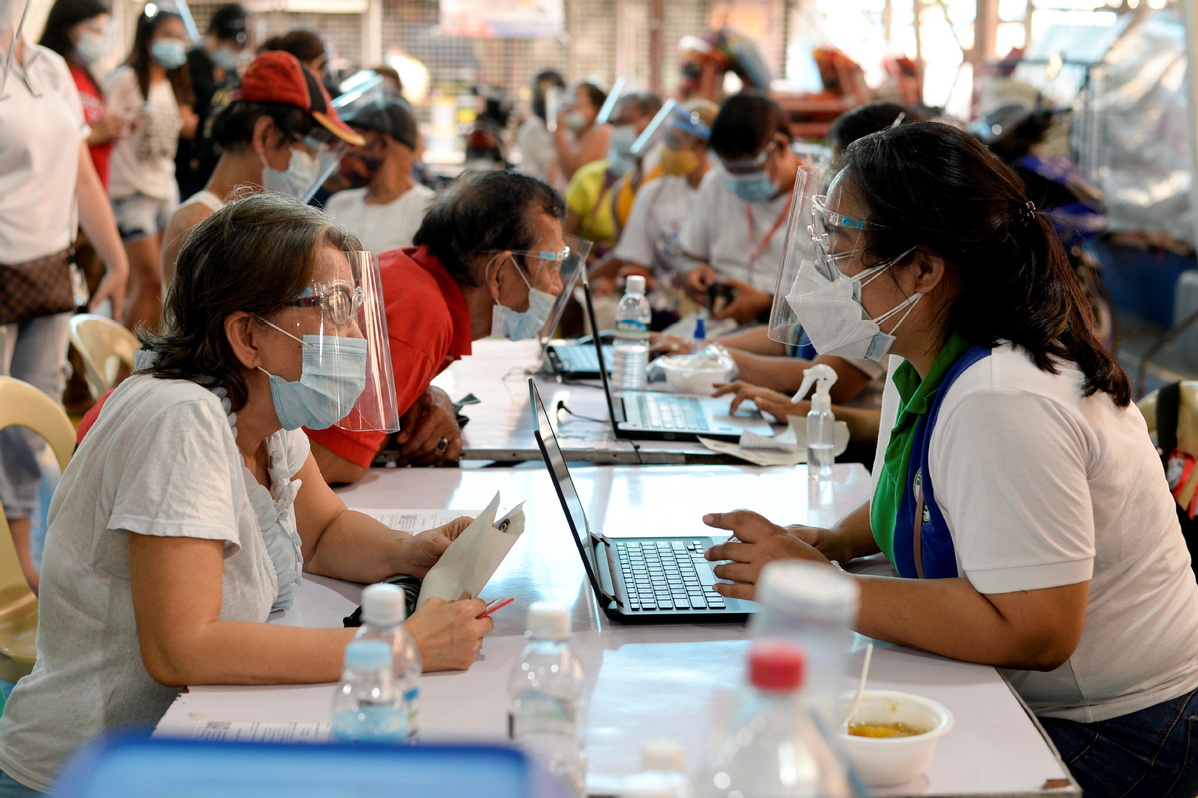Philippines pins hopes on inoculations


With cases climbing, nation counts on Chinese vaccines for turnaround
The Philippines is struggling to cope with a resurgence in COVID-19 infections, but Chinese-developed vaccine supplies are expected to help halt the virus' march.
The number of new cases in the country rose to a range of 9,000 to 10,000 a day in the past week-compared with the roughly 2,000 new daily cases recorded in January and February.
The sharp climb in cases was recorded despite the efforts of health officials in rolling out the country's vaccination program early last month. The vaccines-in that phase of the drive-were donated by China and the COVAX initiative, a global facility backed by the World Health Organization that aims to get supplies to lower-income countries.
About 1 million vaccine doses from Chinese drugmaker Sinovac Biotech arrived in the country on Monday-the first batch of some 25 million doses procured by the Philippine government from China. President Rodrigo Duterte attended the arrival ceremony.
In late February, a donated batch of the Sinovac vaccine became the first COVID-19 shot to reach the country.
Despite domestic needs, China has taken the lead in donating vaccines to the Philippines, and also facilitated the vaccine procurement from China, said Huang Xilian, Chinese ambassador to the Philippines.
"China now is the first and only country to provide vaccines to the Philippines through both donation and commercial procurement, which is a testament to our traditional friendship with solidarity and a closer partnership in the new era," he said at the ceremony on Monday.
More Chinese vaccines will come soon to help the Philippines defeat the virus and normalize its economy, Huang said.
The Philippine government has locked down the capital region of Metro Manila and surrounding provinces to contain the spike in infections. The lockdown started on Saturday and will be enforced until Sunday.
Experts expect the vaccination program be complemented by mass testing, contact tracing, the building of more facilities and more hiring to help the thousands of overworked healthcare workers.
"The country's health workers are very tired and have low morale," said Robert Mendoza, president of the Alliance of Health Workers.
Mendoza told a virtual news briefing on Wednesday that most hospitals are understaffed and the situation has worsened with infections among workers taking them off the wards with quarantines.
He said that in some hospitals, more than half of the beds are filled with COVID-19 patients. Emergency rooms are full and some patients even have to stay in tents on hospital grounds.
Anthony Leachon, a former special adviser to the National Task Force against COVID-19, said most of the country's hospitals are already full and can barely accommodate the increasing number of patients coming in. The supply of vaccines is limited, and healthcare workers are also in danger of getting sick because of fatigue.
Complacency a factor
He said the premature reopening of the economy, combined with people's complacency in adopting health protocols and the arrival of more infectious variants are the key factors behind the spike in cases.
As of Thursday, the Philippines had reported 756,199 infections, with more than 17 percent of the case listed as active, according to the health department. This count is the second highest in Southeast Asia.
Jomar Rabajante, member of the University of the Philippines' COVID-19 Pandemic Response Team, expects the number of infections to continue to rise owing to the high positivity rate.
He said the effect of the new lockdown measures will be reflected only after two weeks.
"We need to have protective measures and we need to isolate infected people efficiently and effectively. We need to protect the vulnerable," he said.

































